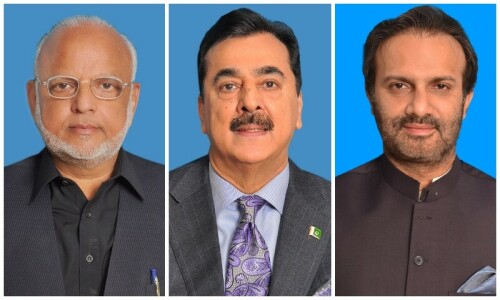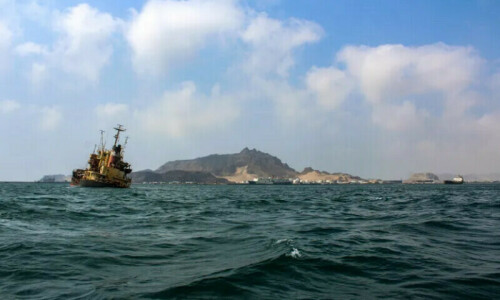ISLAMABAD: The Green Climate Fund (GCF) has approved a $9.8 million climate risk management initiative aimed at strengthening resilience to extreme weather events in flood-prone districts of Khyber-Pakhtunkhwa to be implemented by World Food Programme (WFP) of the United Nations in collaboration with the government.
The project aims to enhance flood early warning and anticipatory action by strengthening the value chain and dissemination of climate information services and early-warning systems. This includes the installation of automatic weather stations, automatic river gauges, and automatic water level stations.
The approval of the project was granted during a meeting of the GCF board held in Songdo-Incheon (South Korea), where the agreement was also signed between WFP and GCF.
The five-year project will also improve climate-sensitive anticipatory action through better protocols and simulation exercises. Additionally, the project will enhance local adaptation plans, support livelihood diversification, and improve knowledge management and learning.
Green Climate Fund’s initiative to be executed by WFP
In Khyber Pakhtunkhwa, observations indicate an increase in pre-monsoon rainfall, reflecting shifting and increasingly variable rainfall patterns. The 2022 flooding event was one of the most catastrophic natural disasters in the country’s history.
Climate change is expected to worsen existing inequalities, disproportionately affecting vulnerable and marginalised groups such as women, children and people with disabilities. These groups are likely to suffer more from floods due to their limited adaptive capacity, particularly their inadequate access to social protection and adaptation mechanisms.
By strengthening the technical capacity of the public sector in the province, the resilience-building project aims to enhance flood forecasting and anticipatory action. It will enable vulnerable and food-insecure rural households to access a suite of climate-resilient tools to diversify their livelihoods and achieve financial sustainability.
Additionally, the project will improve climate information services, enabling communities to prepare for and adapt to flash floods with improved flood risk information and local adaptation planning for resilient livelihoods and infrastructure.
The innovative initiative will benefit over 1.6 million vulnerable individuals on the frontlines of climate change through improved climate information services and an early warning system. Plans include installing automated weather and hydro-meteorological stations in Buner and Shangla districts, offering tailored crop management advisories, reducing negative coping strategies during floods such as reducing expenditure on health, food and education, and engaging local entrepreneurs and the private sector.
WFP Country Director Ms Coco Ushiyama has welcomed the GCF’s decision to support the agency’s project, underscoring the vital role of financing to accelerate climate action. “Climate change could well be our existential threat; it is also a call for our collective efforts to build a more resilient and food-secure future for all,” she underscored.
The project will complement ongoing efforts to build climate resilience in Pakistan by addressing gaps in early warning systems, community engagement and livelihood resilience against flash floods. Furthermore, the project incorporates gender-transformative and inclusive strategies, and will prioritise marginalised groups, particularly women and persons with disabilities, for access to information and climate resilience measures.
Focusing on institutional capacity development, knowledge transfer and long-term sustainability, the project marks a significant step forward and serves as a model for comprehensive, community-centred climate adaptation. The success of this project could pave the way for similar initiatives in Pakistan.
Published in Dawn, August 22nd, 2024














































